Canceled Orders
Thoughts on contemporary American culture observed in the microcosm of the comic books industry; or, How DC Comics reacted to losing their trademark on "Truth, Justice and Pizza"
Alright, time for me to stop stalling: “Radio Free Pizza analyzes society, culture, politics, economics, and media,” this newsletter’s description currently warns, so let’s drop the literary pretensions.
But, rather than surrender comic books (literature’s ugly stepchild: someone should care for it), I’ll use it to provide an example of, and a segue to discussing further, a familiar phenomenon in the contemporary United States.
I speak of cancel culture. Of course, I only speak of it in whispers, fearing so much for my livelihood should I ever speak ill of it, though still we press on.

Those of you who are neither into comics nor terminally online might ask me how I could link cancel culture and comic books. To that I can only reply that you’ve clearly been blessed to have never heard of Comicsgate.
Still, I guess it’s time you got acquainted. As Chris Jancelewicz reports:
Comicsgate pushes the idea that the comic book industry — mainly laser-focusing on “biggie” creators DC Comics and Marvel — is motivated solely by political agendas, and as such it’s aiming to transform its long-running tradition of featuring white, heterosexual male comic-book characters into a more diverse spectrum.
Alright, full disclosure here: I love superhero comics, and have since I was a young boy. However, being now in my 30s and possessed of numerous distracting circumstances, the only time I have for comics is writing them, and catching a few pages here and there from the creators I follow on this platform. But the accusation leveled at the mainstream comic book industry surprised me when I first learned of it, and in fact surprises me still.
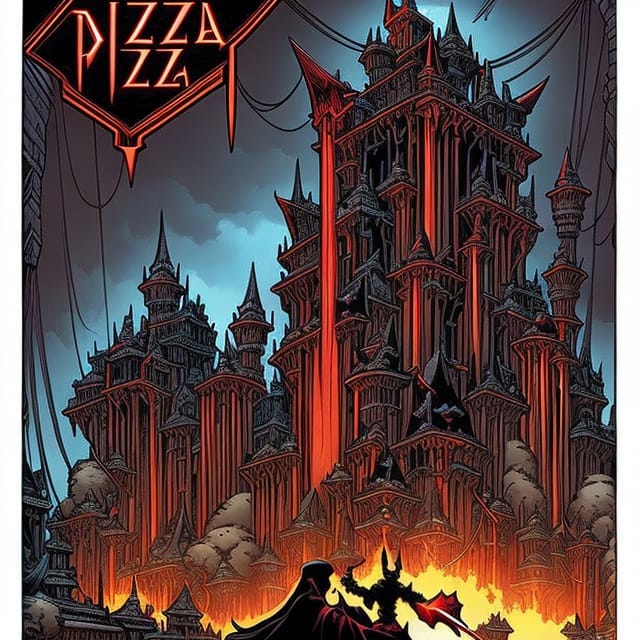
After all, and as I mentioned in my last post on comics, it’s more-or-less common knowledge that—whether in the case of Superman symbolizing the Depression-era hopes of the downtrodden masses, or of the X-Men dramatizing the 1960s struggle for civil rights, or of pioneering appearances of transgender characters in the 1990s—superheroes have always embodied a progressive ideal aimed at elevating humanity in one way or another.
Is that really what they’re mad about? I mean, given the history of the medium, diversity in comics hardly sounds scandalous.
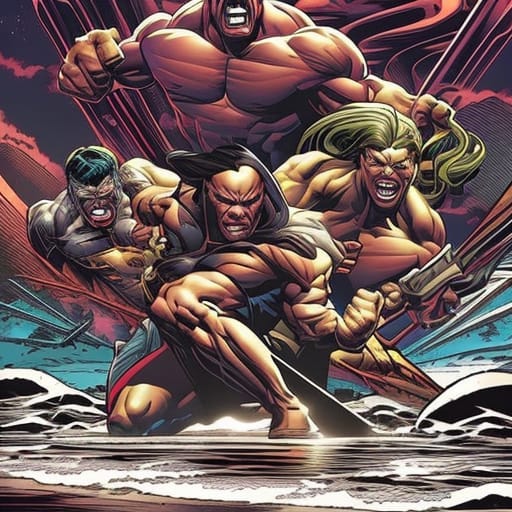
Having been on the sidelines for the most tense years of the Comicsgate discourse among graphic novelists and sequential artists—if I was even aware of it at all at the time—I needed to acquaint myself again with what I could only recall my more fandom-faithful friends complaining about five or six years ago. The nigh-twenty articles I’ve read so far paint an ugly picture: traditionalist reactionaries harassed, doxxed, and vandalized the businesses of their perceived opponents.
Do you see the connection to be drawn between Comicsgate and cancel culture? I’ll pull in John McWhorter to help define the latter: “the idea that social justice must be pursued via attempts to banish from the public sphere, as much as possible, all opinions that they interpret as insufficiently opposed to power differentials.”
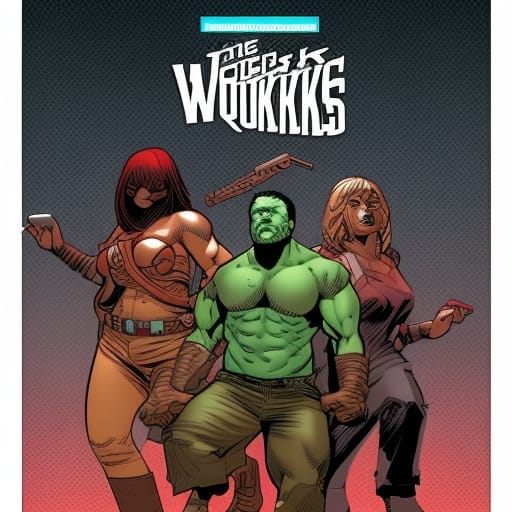
Ligaya Mishan can help flesh it out: “The term is shambolically applied to incidents both online and off that range from vigilante justice to hostile debate to stalking, intimidation and harassment.”
Although proponents of Comicsgate take focused aim at “Social Justice Warriors,” their similarities are hard to ignore. A bakery was vandalized for refusing to supply the cake for a gay wedding. Abortion activists doxxed Supreme Court justices. Online harassment drove an internet personality to retire from social media. (An inestimable loss, I’m sure.)

Easy enough to call these two sides of the same coin. The interesting distinction, however, is that in the comics community, the canceling zeitgeist appeared not among liberals but conservatives. We can observe this even from Eric Francisco’s coverage of the 2017 New York Comic Con, during which retailers—or, the petite bourgeoisie, as one might call them in a casual class analysis, fittingly aligned here with reactionary traditionalists—spoke angrily about superhero comics’ perceived progressive agenda at a panel with the industry’s largest distributor.
The day before New York Comic Con even started, Diamond held its annual exclusive breakfast panel for comic book retailers [...] the panel went smoothly — until it didn’t. Frustrated by Marvel’s increased presence of non-white, non-male characters headlining their own books, retailers angrily voiced their opinions against the publisher. The words “homo,” “freaking females,” and the word “black” were shouted in a seemingly negative tone, which ended the panel abruptly.
Though their words here hint at a motive of prejudice, retailers seem to have had other reasons for reacting negatively to what Comicsgate proponents characterize as an editorially imposed diversity. As Marvel’s senior sales VP said frankly six months before the aforementioned convention, “What we heard was that people didn’t want any more diversity […] I don’t know that that’s really true, but that’s what we saw in sales.”
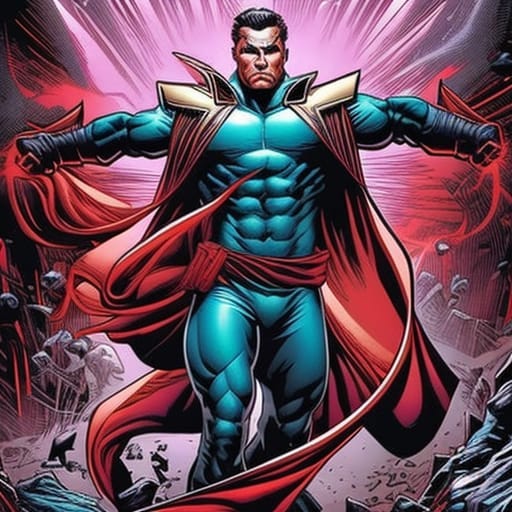
So, if the mainstream comics industry was losing money in their efforts, what explains their determination to seed diversity into their titles? Of course there’s the opportunity of capturing a fresh audience from previously underrepresented demographics. In Marvel’s case, maybe some might trace the impulse to Disney’s ownership, an executive of which recently told employees of her “not-at-all-secret gay agenda” and her freedom to go about “wherever [she] could, just adding queerness”—though frankly I consider Disney’s efforts on this front a similarly mercenary endeavor to synthesize a renewed customer loyalty from identity politics.
But I think the most enlightening explanation for the supposed progressive agenda comes from central Comicsgate figure Ethan Van Sciver. As JB Augustine reports, Van Sciver hypothesizes that DC Comics’ revision of the Superman slogan to replace the hero’s commitment to “the American way” with a commitment to “a better tomorrow” due to their trademark having lapsed on the original.
Van Sciver goes on to note that DC Comics’ patent (as opposed to trademark) on “Truth, Justice, and a Better Tomorrow” will allow the company to collect licensing fees from it in perpetuity without paying any royalties to the Siegel family.
Certainly I’m not a copyright lawyer or patent attorney, but I’m guessing similar statutes apply for characters like Superman’s son, Jon Kent, introduced in 2015 and revealed in 2021 as a member of the bisexual community.
Between the benefits of plumbing new demographic subdivisions and how reinventing their most popular characters allows major publishers to extend further the duration for which to extract profit from these properties, I believe we arrive at a satisfactory framework in which to examine the phenomena against which Comicsgate reacted.

Of course, “satisfactory” doesn’t necessarily mean complete. While I interpret the aforementioned Disney executive’s comments as an admission of acting on personal preference, as opposed to enacting a psychological operation or conspiratorial agenda, I see other circumstantial evidence worth investigating that may account for what Comicsgate alleges of the industry.
For example, the demographic diversification (and concomitant life extension of intellectual properties) developed contemporaneously with the increasing preponderance of ESG scores since the United Nations solicited the first “Who Cares Wins” report in 2004, which popularized the term.
These ratings systems, such as the Human Rights Campaign’s Corporate Equality Index (now revitalized in public discourse after Bud Light’s disastrous ad campaign starring Dylan Mulvaney) may negatively affect a company’s corporate credit or, for publicly traded companies, how much of a portfolio that asset management firms allocate to a company’s equity.

Vivek Ramaswamy, candidate for the 2024 Republican presidential nomination, traces the popularity of ESG scores on Wall Street to another historical moment besides either the aforementioned “Who Cares Wins” report, or the 2002 launch of the Corporate Equality Index:
It dates back in large part to the 2008 financial crisis where what happened was, in the back of the ’08 crisis, Occupy Wall Street was on Wall Street’s doorstep. And what they said was that if you want to take those bailouts from the public funds, then we’re going to take your money and redistribute it to poor people to help poor people. That was roughly speaking the genesis of the Occupy Wall Street movement.
And what Wall Street realized was that, ‘You know what? We can come up with a solution because there’s a new version of the Left, not the Occupy Wall Street Left, but what we’ll call ‘the new woke Left.’ That actually was focused on different issues, not poverty or economic injustice, but systemic racism and climate change and misogyny and bigotry.
Now, as I said above, I consider this only circumstantial: not, in other words, concrete evidence of any concentrated effort originating at the confluence of activist organizations and the financial industry to promote identity politics over class struggle among (*checks notes*) the audience of the mainstream comic book industry.
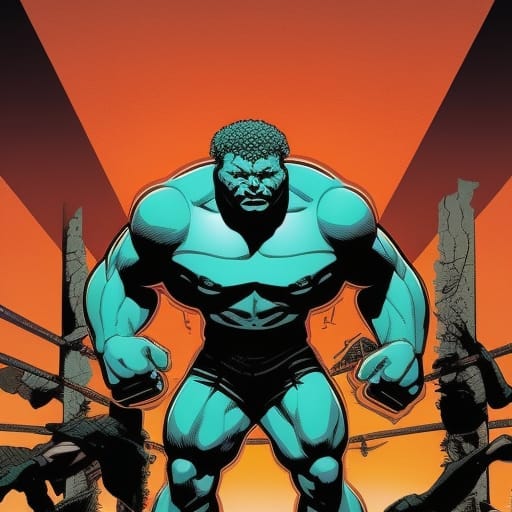
But these circumstances themselves—with the craven opportunism of “woke capitalism” exploiting consumers’ own progressive sentiments in order to (in the language of ESG) “maintain their social license” to supply goods and services and to extract profit from doing so—don’t need a conspiracy (much as I appreciate Ramaswamy supplying a motive). Instead, the incentives embedded in the framework of ESG provide reason enough for us to characterize editorial policies promoting diversity as merely a business strategy, despite those editors’ beliefs or personal agendas, against which Comicsgate reacted with the trademark tactics of cancel culture.

Finally, there’s one more factor I find worth considering for its effect on the editorial direction of mainstream comic books. Returning again to Eric Francisco’s coverage of the 2017 New York Comic Con, we find another potential influence on editorial decisions outside of identity politics: a collaboration with Northrop Grumman.
The full scope of the partnership […] included a special, all-ages comic book crossover between the Avengers and Northrop Grumman’s own mascots, Northrop Grumman Elite Nexus, or N.G.E.N.
Although Northrop Grumman doesn’t manufacture guns, strictly speaking, the company does specialize in military aerospace and missile defense systems, which didn’t sit well with a lot of True Believers who paid attention to Iron Man in 2008. (The entire Marvel movie universe began when billionaire war industrialist Tony Stark saw the horror of his weaponry up close.)
Of course (as I’ve covered before) the military-industrial complex has played a significant role in the comic book industry in general, and in superhero cinema in particular. For that reason alone, I went looking for any intersections between the military-industrial complex and cancel culture, before—to my tremendous surprise—I discovered they intersect in the field of hybrid warfare.
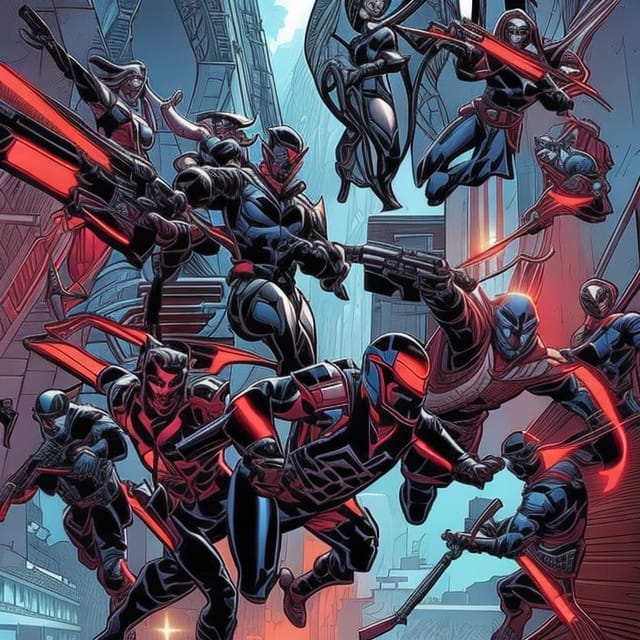
Daniel Smith’s post on the blog for Radware, an American cybersecurity firm, outlines the overlap between cancel culture and hybrid warfare, in which both states and NGOs function as actors to undertake (among other activities) the psychological operations employed in unconventional warfare. Warning how online campaigns can sow civil discord in vulnerable societies and manipulate a target population into mass movements aligned with an actor’s political aims, Smith offers the example of conflict between China and India, in which “both sides are starting to publicly move away from conflict […] while projecting political instability and preventing people from suspecting government involvement by stimulating and manipulating hatred and division.”
Despite any apparent movement toward the end of hostilities, conflict between the powers only becomes more veiled and insidious, and the contemporary phenomenon of cancel culture has become a weapon to turn the members of a target population against each other. Smith identifies this both as a tactic already in use and as one sure to develop further.
Hybrid warfare and cancel culture can be a dangerous thing when combined. By over stimulating citizens with narratives of hatred and nationalism, governments are creating a form of cancel culture and pride that will inspire patriotic hacktivists to act against opposing sides.
Technology can provide a more immersive and rewarding experience for users around the world but as more governments and processes become digitalized and controlled, we may see more forms of hybrid warfare, where unconventional targets such as corporate networks and citizens become the center of attention for population-centric, military strategies.
Let’s acknowledge, of course, that as a cybersecurity firm, Radware has some incentive to exaggerate the potential threat of cancel culture as a weapon that one state might use against another. Nonetheless, even considering its potential in war leads me inevitably to reflect on the damage done to Comicsgate’s victims of harassment and, more broadly, to everyone who has ever suffered from any such campaign.
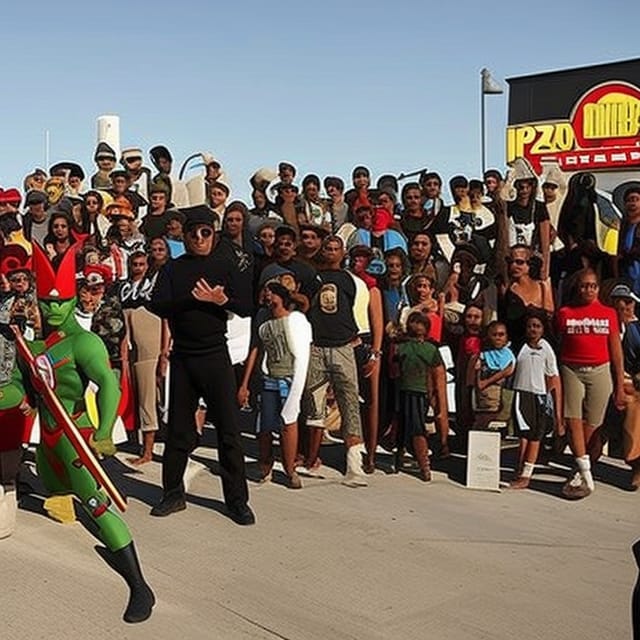
But, having learned of cancel culture as a possible weapon of war only after discovering the similarities in tactics that both Comicsgate reactionaries and progressive activists employ, the question still remains: what drove an audience to go to war with its industry?
…Also, if only because it’s the kind of question I find entertaining:

Do you think Lockheed Martin had anything to do with it?



